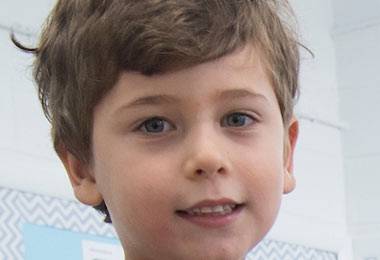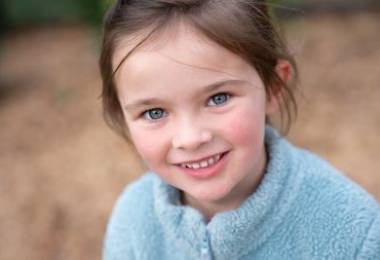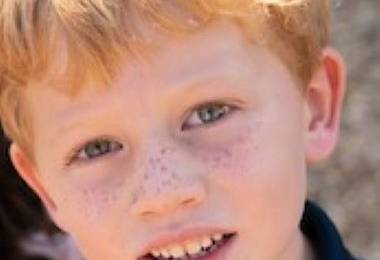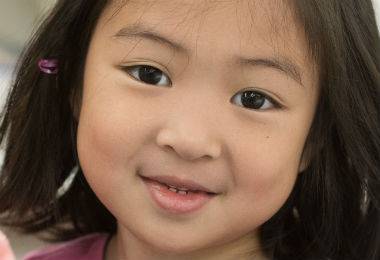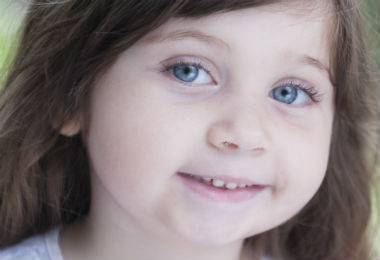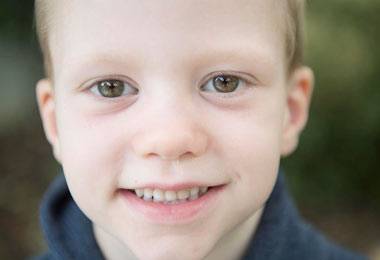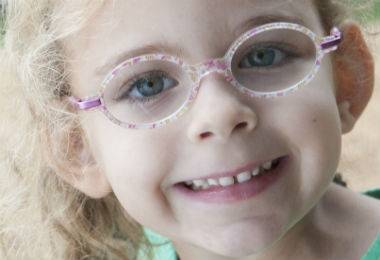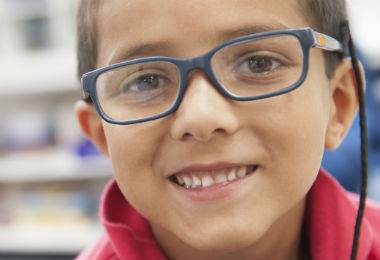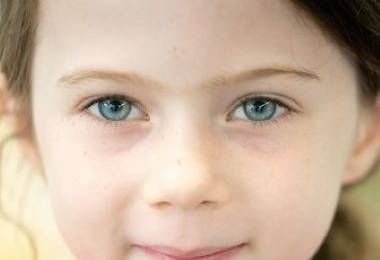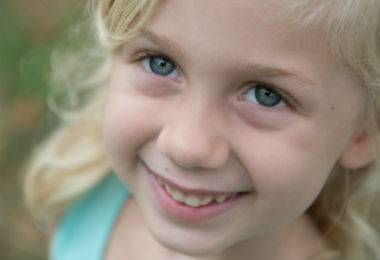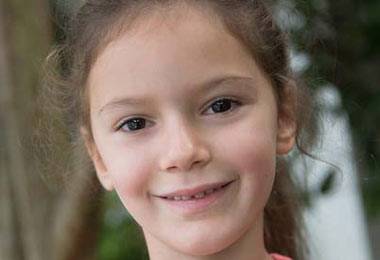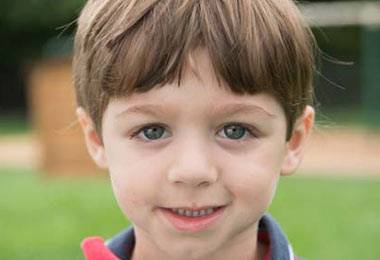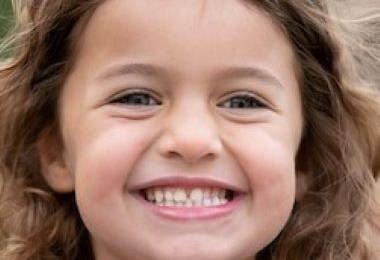Parents as Mangroves
May 30, 2024
What Makes for a Well-Balanced Child?
May 2, 2024
Determination
April 8, 2024
Instilling Responsibility
March 6, 2024
PDS’ Countercultural Stance Making Respect the Norm
February 7, 2024
Cooperation and Connection
January 11, 2024
Hope
December 14, 2023
The Gift of Gratitude
November 1, 2023
“How America Got Mean” vs. PDS Values
October 4, 2023
Striving Towards a Growth Mindset & Savoring
September 11, 2023
Practicing PDS Values Over the Summer
July 5, 2023
The Lure and Language of Nature
July 5, 2023
Developing Helpfulness in Children
July 5, 2023
Neil Mufson, Head of School
The Balm of Empathy
July 5, 2023
The Unending Human Cost of School Shooting
July 5, 2023
Responsibility & the Dream Remote
March 24, 2023
Primary Thoughts
Neil Mufson, Head of School
As I have been thinking about responsibility, the PDS value for March, and the children’s amazing responses to my question “What is responsibility and what does it look like?” at the recent Beakos, I thought of The New Yorker cartoon from about 10 years ago by Roz Chast entitled “The Dream Remote.” Pictured was a remote control full of buttons related to many day-to-day responsibilities. Beyond buttons for “wake up,” “brush your teeth,” “take out the garbage,” “clean room,” and “do homework,” there were those related to some of the finer points we try to instill in our children – “write thank you note,” “stop picking on your brother or sister,” “pick that up,” “put that down,” and “leave that alone.”
Of course as we try to teach our children about responsibility, there are no such simple devices. A substitute simply does not exist for a parent’s consistent and steadfast efforts to model, teach, and ultimately instill responsibility. In fact, when we neglect this kind of critical teaching or try to find ways to make it easier for our children to learn and meet their responsibilities, we are short-changing them in the long run. It is only by providing age-appropriate opportunities for this kind of practice that we lower the risk of creating “responsibility-impaired” teens and adults (A decade or so later than the Chast cartoon, what does this February 16’s daily cartoon also from The New Yorker say when it shows a dejected Spiderman sitting at a bar with a man who says, “Listen kid – in the real world, great power comes with no responsibility whatsoever”?)
By the way, opportunities to learn responsibility should not be accompanied by the lure of a reward. We need to build on the intrinsic satisfaction our children feel as they meet their obligations and help themselves, their family, or others. After all, we don’t want our children to become dependent on a reward in order to do the right thing.
Though a simple push of a button on “the dream remote” is indeed tempting, there are no shortcuts to developing responsible, dependable, reliable offspring. Plus, we’d probably have trouble keeping track of the remote anyway.
The AIMS Accreditation Process
March 3, 2023
Primary Thoughts
Neil Mufson, Head of School
Next week I will be away from school through Wednesday chairing an accreditation team for the Association of Independent Maryland & DC Schools. Every ten years independent schools undergo an exceedingly thorough, two-year, inclusive self-study during which time every aspect of a school’s operations is examined – from curriculum and teaching to finance and safety. AIMS’ Commission on Accreditation has created a detailed document that guides schools through this process. It also includes lists of every local and state legal requirement schools are compelled to follow as well as more generative questions that ask the school to consider how it might improve in the future.
When the self-study is complete, a team of educators from a variety of AIMS schools visits the school for 4 days. The team is composed of personnel in different roles from schools of various sizes, locales, and type (boarding, single gender, coed, PK-2, PK-12, etc.) The accreditation team reviews the massive self-study before the visit. It is then the team’s task to determine if the school does what is says it does, if it meets all accreditation standards, and if its practice is congruent with its stated mission. The accreditation team then compiles a report describing its findings in every area of school life and including lists of commendations and recommendations.
Once the school has received the accreditation team’s report which has been reviewed by the Commission on Accreditation, it has one year to create an “Action Plan.” This entails documenting the school’s plans to address every recommendation made by the visiting team. The Action Plan is reviewed by the team chair and then it is presented to the Commission for approval. The school then has 4 years to work on and document its progress on every item in the plan. The school is revisited five years from the time of the initial accreditation reports and is evaluated in its plan implementation. Three years later the school starts the self-study process again.
Over the years, I have served on and chaired numerous accreditation teams for AIMS, and I chaired the Commission for 6 very long years. It is a remarkable and intense professional development experience in that it exposes educators to a variety of settings, ways of doing things, and solutions to common dilemmas.
Primary Day had its 5 year visit last fall while we were still under many of the restrictions of the pandemic. We were lauded for our progress over the past five years under the leadership of Scott Lawrence. We are now finishing up some items from our last Action Plan before we begin a new self-study in about 2 years.
While I will be available to respond to significant issues next week, please contact Sami Eghtesadi, our Director of Teaching & Learning, for items with which you would typically reach out to me.
Respect
February 16, 2023
Respect
Neil Mufson, Head of School
If you’ve seen the brilliant, glowing bulletin board just inside our front door, you know for sure that this month’s Primary Day value is RESPECT. The board makes this keystone practice very concrete by noting some simple ways our young friends can RADIATE RESPECT:
- Follow Beako’s Golden Rule.
- Think before you act.
- Include everyone.
- Treat others with respect.
- Be considerate.
- Listen carefully.
- Be kind.
- Think before you speak.
- Apologize when needed.
- Use polite manners.
This month’s focus on such an important practice reminded me of a small volume I came across a number of years ago called Say Please, Say Thank You: The Respect We Owe One Another. Written by Donald McCullough, a professor of theology, the book focuses entirely on the concept of respect. The author’s central assumption is that “people deserve to be treated with respect, not because they have earned it, not because they are always kind or easy to get along with, but because they are part of something bigger than themselves… they [are part] of humanity.”
McCullough maintains that if we “Treat one another with a lack of respect, that lack of respect will spread, not only back to you but toward others. Treat one another with the dignity befitting human beings, and that dignity will in turn multiply. Attitudes and actions are as infectious as a mean virus.”
McCullough asserts that by observing simple courtesies, each of us can help turn the course of our society’s rampant incivility. This suggests a natural place to begin with our children. Taking the time to emphasize seemingly small expressions of thoughtfulness – for instance, consistently saying “please” and “thank you” – “can have a big role in creating a more humane humanity.” By teaching our children to make “everyday” courtesies more “everyday,” we teach them to respect others, which strengthens their connection to others and every community of which they are a part. After all, as McCullough writes, “Our lives are built one small brick at a time, ordinary day by ordinary day. With each little expression of thoughtfulness we help create something of immense significance… a manner that acknowledges the worth of human beings.”
The suggestions on our front bulletin board can indeed radiate outward. A more connected, humane, and respectful world can start right here!
Is Cooperation a Lost Art?
January 19, 2023
Is Cooperation a Lost Art?
Neil Mufson, Head of School
Given our nation’s evermore frayed political climate, the world’s seemingly countless, intractable conflicts, and our planet’s perilous, much-neglected state, it can feel futile to talk with our children about cooperation, The Primary Day value for January. Perhaps, though, it is more important than at any time in recent memory.
Against a backdrop of seemingly unprecedented discord and tension, we have to seize every opportunity to teach our children about the importance of working collaboratively toward common goals. While most individuals cannot influence global events, we can teach our children that they can indeed be more in control of their own spheres if they learn the power of interacting positively and collaboratively with others. Consideration of differing points of view, compromise, and partnership are delicate arts that, with practice, can lead to accomplishments that are far greater than individuals can achieve on their own. By seizing teachable moments in school, within families, and when we are around our children as they interact with their friends, we can help them hone their cooperative skills and gain a better sense of our interconnectedness. Even though some species possess such native tendencies, humans must learn, practice, build, and maximize them.
Economists predict that of the top 10 jobs that Primary Day children will encounter when they enter the work force, 6 aren’t even invented yet; but they posit that all 10 will demand collaboration. This is probably not so surprising since cooperation is at the base of much of what humans achieve. As John Donne observed as early as the 16th century, “No man is an island.”
“Kind World”
January 6, 2023
"Kind World"
Neil Mufson, Head of School
As we begin a new calendar year, I’d like to return us to the Primary Day value with which we began this academic year: kindness. World events and daily life remind us that there is never a shortage of situations in which kindness is important and potentially transformational. As I have already cited on many occasions, research on kindness shows that no act of kindness is wasted. They all improve how we feel about our place in our world, how we impact the lives within our orbit, and how we can even improve the world in general. Ask your children, “What did the Dalai Lama say about kindness?” and most can recall, “Be kind whenever possible. It is always possible.”
One of my favorite podcasts is an utterly amazing, inspiring, and now discontinued series called “Kind World.” Each piece is only four to six minutes long, but I found each more powerful than the last. The lead-in describes the podcast as illustrating that “Small acts of kindness may seem ordinary but are actually extraordinary and amazing to others. A smile, a helping hand, or simply listening can be as important as breakthrough therapies.” The episodes go on to tell the story of a single set of circumstances which illustrate how powerful a “simple” act of kindness can be. For example, the episode “Strangers at the Airport” tells the story of a young woman whose plane journey got interrupted in severe thunderstorms and how a family intervened to make her feel safe, cared for, and not alone during an overnight delay at a connecting airport. Even our first and second graders would be able to relate to what the family did to display kindness, how they initiated that kindness, and how their compassion made the young woman feel. They would realize that it doesn’t take big actions to show kindness and have an impact.
While many “Kind World” episodes are decidedly adult-oriented, by listening to them, we can gain a broader sense of how meaningful individual action can be. They give us an inspiring sense of how we can reach out to others – even total strangers – and make a difference in how they feel – and ultimately how we feel. And here’s a challenge worth setting: Can your family regularly reflect (weekly, for instance) on an action some family member took that was a particular act of kindness and the impact it had? Or, did someone treat “one of us” kindly and how did that make us feel?
While empathy can be an abstract concept for our small children, all understand the idea of kindness. It is an important habit to form, practice, and reflect upon. By flexing the kindness muscle more intentionally, we increase the likelihood of its positive impact, of meeting the promise of the Dalai Lama’s truth.
What Patience Can Bring at This Time of Year
December 14, 2022
What Patience Can Bring at This Time of Year
Neil Mufson, Head of School
Each year at about this time, I re-read and re-savor my favorite winter holiday story, Truman Capote’s A Christmas Memory. One of the things that makes for great literature is a text’s ability to say something timeless yet new each time it is read. Capote’s Depression era tale does that and has at its roots themes about kindness, gratitude, and patience, three of our Primary Day values.
Capote’s tale tells of the special relationship between Sook Faulk, an elderly spinster, and her best friend Buddy, her seven-year-old distant cousin. The plot revolves around their yearly routine of making fruitcakes to give as gifts to the special people in their lives. But beyond the story line, in marvelously crafted writing, lies the richness of their friendship, their love for each other, and their caring about others. Buddy also learns deep lessons about the value of patience.
Sook and Buddy’s connection is strengthened by their annual ritual which includes gathering in an old baby buggy the nuts from an ancient pecan grove, painstakingly shelling them by a fire, patiently squirreling away their pennies for a year so they can buy other necessary ingredients (including homemade whiskey), baking thirty-one cakes in four days, and sending them off to “friends, not necessarily neighbor friends, indeed the larger share are intended for persons we’ve met maybe once, perhaps not all… People who have struck our fancy.” Once the cakes are on their way, there are their other holiday customs to attend to – cutting a tree from deep in the forest, handcrafting decorations, buying their dog Queenie a bone, and making each other a gift, which usually and quite magically ends up being a kite, easily read as a symbol of the transcendence that their friendship and their caring for others bring.
One of the lines that especially caught my eye as I reread the novella this year has to do with a statement Sook makes when she and Buddy refuse a veritable fortune for the treasure of a Christmas tree they have cut. The mill owner’s wife, who very much wants their tree says, “Goodness, woman, you can get another one.” Buddy reports, “In answer, my friend gently reflects: ‘I doubt it. There’s never two of anything.’” That’s probably true of the most valuable things in life, yet it also strikes me that yearly rituals such as those engaged in by Sook and Buddy can indeed multiply and deepen life’s most valued relationships, moments, and expressions of compassion.
The same is true of each family’s holiday rituals. When we’re patient and take the time to get beyond the rush, hype, and the material, there’s that which can bring greater continuity to our lives, can deepen our love, can focus us on what is truly important, and can bind us more closely together. That’s what I hope you and your family will find this and every year, if you celebrate a year-end holiday or not.
Supporting the Development of Healthy Friendships
October 27, 2022
Neil Mufson
Even though Primary Day’s children are only between the ages of 4 and 8, my eye was drawn this summer to a Washington Post article entitled, “Adults Undervalue Teen Friendships.” While the piece pointed to guidelines for helping parents support their teen’s friendships, the article actually pointed towards “the PDS years” in promoting strong friendships, emotional stability, and satisfying, healthy connections to others.
The writer of the article, Amy Laber-Warren, posited that close, positive peer relationships are as potent a force in adolescents’ lives as bad influences can be. In order to foster healthy decision-making and development, teens need at least one close friendship — to confide in, bounce things off of, and to be encouraged and held in check by. But the piece points out that parents often under value these kinds of connections in favor of what adults believe “augur success: doing well in school, helping around the house, participating in sports or community service… [Parents} tend to under-appreciate… the value of close teen friendships… Children who develop supportive, trusting relationships with others their age are more likely to become healthy, happy, and successful adults.”
Some of the factors that can support teens in developing these kinds of relationships are equally important for Primary Day students. Consistent modeling of how to be a good friend and regularly talking about how to behave when presented with common friendship dilemmas are key ways parents can help children form good friendships themselves. Also, calmly talking through how to problem solve when inevitable peer conflicts develop is excellent practice for when run-of-the-mill quarrels arise. Laber-Warren also suggests welcoming children into your home as a way of fostering good friendships, and focusing on quality rather than quantity of friendships. Researchers have found that having a best friend or being popular do not correlate to future satisfying relationships, but having at least one or two good friends does.
Strong friendships are part of what makes life optimally satisfying. Researchers have found that proactively helping children with the “slings and arrows” as well as joys of friendships now leads to greater “academic success, better mental health, more rewarding romantic relationships, and even better physical health” throughout life.
Honesty as a Cornerstone
October 13, 2022
Honesty as a Cornerstone
Neil Mufson
Why is honesty, the PDS value for October, one of the initial concepts we focus on during our year-long focus on character? Because, along with kindness, it is so closely aligned to trust, which stands at the root of almost all meaningful, positive, satisfying, harmonious, and productive human relationships. Also, even our youngest children can understand many of the ins and outs of truthfulness, which is an essential building block of integrity, the broader value we seek to instill.
Plato put it this way: “Truth is the beginning of every good thing... and he who would be blessed and happy should be from the first a partaker of truth, for then he can be trusted.” Mark Twain put it far more practically: “If you tell the truth, then you don’t have to remember anything.”
What both Plato and Twain point to are some of the fundamental verities about honesty that can resonate with Primary Day children, particularly with the benefit of clear adult guidance. Why be truthful even if it can sometimes be very difficult and even a little scary? It’s the right thing. It feels better. It’s less complicated. It often softens consequences and hastens forgiveness. It builds trust. In short, it makes good things more possible.
Contrast all of this with the model we seemingly so consistently see in public life, where saying something repeatedly stands in for truth; where dishonesty and the opposite of kindness have shattered the public trust; and where lies of supposed leaders imperil lives, endanger our planet, and jeopardize justice. We clearly want our children to inherit a better world. But we also want them to develop the power to change it. So we start with kindness and honesty, then gratitude and patience, cornerstones to strong individuals, stronger relationships, and a stronger world.
Partnering with RR & A for Psychological Services
September 29, 2022
Primary Thoughts
Neil Mufson, Head of School
This school year we are engaging in a pilot initiative to bring the services of consulting psychologists to Primary Day. In the past several months, I have worked with Dr. Rebecca Resnik and Dr. Rachel Singer of Rebecca Resnik & Associates (RR & A), an extremely well-regarded local group of psychologists, to create a multi-faceted program to benefit all constituents of our school: students, faculty, and families.
To begin with, I wanted to make sure we were most effectively handling what psychologists are calling “fallout from the echo pandemic.” That is, I wanted us to be as proactive as possible in meeting any particular emotional and social issues that have arisen for our children due to the restrictions and disruptions of the pandemic. I wanted to have thought and action partners in providing prudent, research-based intervention strategies. This may be as simple as teaching the faculty to identify signs of emerging distress, or it may involve working with classes on topics such as stress reduction, mindfulness, worry, or social dynamics. The topics will be ever-evolving.
However, since I wanted our partnership to go beyond issues we’re seeing in the aftermath of the pandemic, RR & A will also serve as a resource for me, our Director of Teaching & Learning, our learning specialist, and our teachers when we are confronted with complex issues involving emotional health and well-being as well as complex learning issues. Our teams may seek insight when discussing challenging student situations. We may include a consulting psychologist in parent meetings, as appropriate, if you have given permission for your child to be observed.
Over time, RR & A will also lead teacher workshops to help us identify emerging mental health concerns and implement effective interventions within the classroom setting. Similarly they will conduct parenting workshops on topics such as fostering resilience in children, building children’s abilities to navigate social difficulties or setbacks, managing stressors related to parenting, empowering growing independence, or developing strategies to help children gain emotional awareness and regulation. I welcome your suggestions for other relevant topics.
Another very unique capability that RR & A will offer us is on-site therapy for individual students or small groups of students. Of course we would never have RR &A meet with your child individually without your permission, and RR & A will be offering these particular services at the parent’s expense, just as if the child were a client they saw at their site. However, two significant advantages are that receiving psychological services at school would be less disruptive to the child’s weekly routine, and students whom we refer will avoid long wait lists for service.
I will share more with you as our relationship with Rebecca Resnik & Associates develops. I anticipate inviting you to a parent program before our winter break.
Small Acts = Big Impact
September 22, 2022
Primary Thoughts
Neil Mufson, Head of School
It was a crisp New England fall morning. As I was walking down to my classroom in the Henry C. Sanborn School as a fifth grader, a teacher I barely knew called me over. “Neil, Mr. Mirasola told me that you need more challenging math, and I can’t wait until Monday when you join my class.” I remember feeling slightly flustered but then filled with a kind of glow. I told my parents of about it at dinner. My mom said, “You see, it didn’t take much on Mrs. Gritsavage’s part to make you happy. That was so kind of her.”
“People who perform a random act of kindness tend to underestimate how much the recipient will appreciate it… That miscalculation could hold many of us back from doing nice things for others more often.” Such were the findings in the August edition of the Journal of Experimental Psychology, according to “The Ripple Effect of Random Kindness” recently published in The New York Times. Researchers also found that potential kind deed doers often worry that “a gesture will be misinterpreted, or might make the recipient feel pressured to pay it back.” But Tara Cousineau, a psychologist and author writes, “When the kindness impulse arises, we totally overthink it.” In fact, the article points out “an act of kindness is unlikely to backfire, and in some instances can beget even more kindness.”
So what does this tell us about how we can help our children catch the kindness habit? First, it suggests that we as adults have to model performing small acts of kindness – letting a car go in front of you on a busy street; taking time to really “see” the checkout clerk in the supermarket line; sincerely thanking someone whose efforts and work often largely go unrecognized; emailing photos of the first weeks of school to grandparents. It doesn’t take much but mindful effort.
Simultaneously we can direct our children outward when we comment on some of the kind things we notice in our everyday lives. “That was really kind of that woman to let me take the parking spot both of us were headed for”; “That was so helpful of him to hold the door for us since we were carrying all those heavy packages.”; “It made me feel so good when that woman complimented the flowers I had picked out.” At the dinner table, have everyone take turns saying how they showed particular kindness to someone that day; have the kids make a card for an elderly neighbor; ask them who they might like to take some of the flowers to when you’re working in the garden. By pointing out what otherwise might go unsaid, we reinforce for our children what is important to us. It helps when we consciously counter what another recent study found: that 60% of surveyed teens reported their parents value achievement over kindness.
“No small act goes unnoticed,” says the mother of a 9 year-old daughter who was killed when a tree fell on their car during a storm. Despite those horrific, unthinkable circumstances, that mom set up “Keeping Kindness for Halle,” a great success both in memorializing her daughter and in spreading random acts of kindness. As the article ends, it points out that people do not have to learn new skills to practice kindness: “It’s about: What skills and talents do you already have? And how can you turn that into an offering for other people?”
An "Ice Age of the Heart"?
September 15, 2022
Primary Thoughts
Neil Mufson, Head of School
An “Ice Age of the Heart”?
Last week I mentioned that this summer the faculty read the book The Power of Kindness by Piero Ferrucci. In it, the author states that despite the discord, violence, tumult, and devastation that often pervade the news,
“The fabric of our life is actually made of care, solidarity, [and] mutual service.
These qualities are so embedded in our daily events that we may not even notice
them. Yet to receive kindness does us good… [But] something similar happens
on the other side of the equation: Giving kindness does us as much good as
receiving it… Kind people are healthier and live longer, are more popular and
productive, have greater success in business, and are happier than others.”
Since everyone’s experience suggests that humans are more likely to thrive in environments marked by kindness rather than conflict, our teachers this year will be paying even more mindful attention to ways we can model, emphasize, and expect kindness in our school community.
We also know that children learn best when home and school actively partner with one another. Hence I’d like to invite you to read Ferrucci’s book and to join a group of parents to discuss it in the library on November 15 from 8:30 - 9:15 a.m.
Kindness sounds so basic, yet as we rush about our lives, it can too easily not receive the emphasis it should receive. Ferrucci maintains that,
“We all are in the midst of a ‘global cooling.’ Human relations are becoming
colder. Communications are becoming more hurried and impersonal. Values
such as profit and efficiency are taking on greater importance at the expense
of human warmth and genuine presence. Family affections and friendships
suffer and are less lasting. Signs of this decline are everywhere, visible
especially when they touch us in the small catastrophes of life. You make
a phone call to talk to a person and you hear a digital voice presenting a
list of options… You wait for a letter from a friend and receive an email. The
farm you love is gone, and in its place stands a cement building. You notice
older people are not as well cared for and respected as they used to be.
Your doctor concentrates on the test results instead of listening to you and
looking at you. And rather than playing ball in the backyard, kids move in
the virtual world of video games… I am convinced that we are going through
an Ice Age of the heart… the causes of which are many: new living
conditions and forms of work, the establishing of new technologies,
the decline of the extended family, the great migrations in which
people are uprooted from their birthplace, the weakening of values,
the fragmentation and superficiality of the contemporary world, the
accelerating pace of life.”
And all that was before the pandemic.
Amidst our lives in a world of exponential change, I look forward to exploring with you and other PDS parents how we can stand against this tide and ensure that our children are in the forefront of a renaissance of kindness in an all too shrill world.
In My Beginning is Not Necessarily My End
June 2, 2022
In My Beginning is Not Necessarily My End
Neil Mufson, Head of School
Ever since discovering T.S. Eliot’s The Four Quartets while a comparative literature major in college, I have been intrigued by the lines in the poem East Coker that say, “In my beginning is my end… [and] in my end is my beginning.” While Eliot was ruminating on more metaphysical questions about human existence, as an educator, at this point I find these lines memorable because they are only marginally true for primary-aged children when one considers their progress in any given school year.
Think about how and where your children began the academic year. Now consider what they are like as they end it. Many have seen truly remarkable, meteoric growth in numerous areas. While in some ways their “beginnings” can be recognized in their “ends,” in most cases a school year has worked its magic and utterly transformed them.
Similarly, children will not necessarily begin next year where they end this one. The academic skills they have acquired will not be maintained over the summer without a conscious parental effort. While children certainly need a change of pace over the summer, they also need to continue to read, write, and do math. The school’s summer reading and math suggestions that will be coming home shortly are a good starting point, but parents also need to be alert to opportunities to inject this kind of practice (even if it’s unobtrusive) into their family’s regular routine. In that way, to quote Eliot, “The end is where we start from.”
It has been an absolute pleasure working with you and your precious children during this, my first year at Primary Day. I truly look forward to more growth in the years ahead. My best wishes to you and your family for a wonderful summer!
Raising Readers
May 12, 2022
Raising Readers
Neil Mufson, Head of School
In recently going through an old box of school materials, I came across a tongue-in-cheek “field note” in an old copy of The Hornbook, a journal about children’s books. Written by some friends and former colleagues, a husband and wife teaching team named Dean Schneider and Robin Smith, “Unlucky Arithmetic: Thirteen Ways to Raise a Non-Reader,” was a humorous outline of some of the things parents can do to discourage reading. Here are my favorites:
- Never read where your children can see you.
- Put a TV or computer in every room. Don’t neglect the bedrooms and kitchen.
- Correct your child every time she mispronounces a word.
- Schedule activities every day after school so your child will never be bored.
- Once your child can read independently, throw out the picture books. They’re for babies
- Don’t play board games together. Too dull.
- Give little rewards for reading. Stickers and plastic toys are nice. Money is even better.
- Under no circumstances read your child the same book over and over. She heard it once, she should remember it.
- Make sure your kids only read books that are “challenging.” Easy books are a complete waste of time. That goes double for comic books.
Dean and Robin point to some of what we need to provide for children if they are to become engaged, enthusiastic, life-long readers: models; some freedom from the clutter of screen and being over-scheduled; natural kinds of positive reinforcement; and the time and “space” to develop an intrinsic love of books and language.
The acquisition of strong reading, comprehension, and critical reasoning skills, and developing a love of reading are some of the cornerstone goals of a Primary Day education. It is a joy and challenge for young children to unlock the code of written language. Yet is also both a joy and a challenge to cultivate the right conditions for young children to become avid readers. Parents and teachers must work against ubiquitous societal forces. Reading takes patience, time, focus, imagination, and commitment. There is no more important academic skill. Strong reading habits influence countless other competencies, such as the development of competent writing and critical thinking abilities. Reading is, after all, the bedrock that makes so much of our human experience possible. And, fortunately, when properly nurtured, it’s deeply satisfying and fun.
Enhancing Two of the Central Pillars of Primary Day: Teaching & Learning
April 28, 2022
Neil Mufson, Head of School
- get to know each child, family, and faculty member;
- lead curriculum review, refinement, development, and documentation;
- ensure that the curriculum has no gaps or overlaps, is well aligned within and between grades, and meets or exceeds the requirements of all the schools in which our students enroll in grade 3;
- further develop our capacity to differentiate teaching to best meet the needs of all students;
- promote meaningful and sustainable faculty growth, collaboration, mentoring, coaching, and evaluation;
- and work directly with students to support and enrich their learning.
Policy on Teacher Requests
April 14, 2022
Policy on Teacher Requests
Neil Mufson, Head of School
You will find that each year at this time, as we plan the next academic year and head into our spring parent conferences, I will remind families of an important school policy. As we set about formulating class lists for 2022-23, I ask that you not make requests for specific teachers. I strongly believe that both sections at each grade level offer students a great experience. In either class, your child ends up in excellent hands. Similarly, siblings will not necessarily be placed with the same teacher with whom older siblings were placed.
Many factors go into the creation of our class lists. We seek to create a balance of personalities, talents, temperaments, abilities, and learning styles within each section. We place the overall needs of the group as our primary consideration. As educators, we also clearly weigh what we see as individual needs. However, since the creation of a class is a very delicate and considered enterprise, we must take into account many issues more complex than individual wishes or perceptions.
Therefore, during upcoming conferences or at other times, I ask that you avoid putting teachers in the awkward position of making specific requests, which we cannot guarantee. This is not to say that you cannot offer your input as to the kind of classroom in which you feel your child best achieves. In the end, though, I ask that you trust the teachers and me since we truly have the children's best interests in mind. As always thank you for your cooperation and understanding.
In Praise of Boredom
March 31, 2022
In Praise of Boredom
Neil Mufson, Head of School
I can’t remember the last time I was bored. It is one of the things I love about being a Head of School, a career which gives me enormous variety in the content and shape of my days, as well as in the ages and roles of people with whom I interact. Yet, after a delightful spring break that included time for what Italians call il dolce far niente (“the sweetness of doing nothing”), I found myself focused on the valuable role that unstructured time – and, yes, even boredom – has in the lives of children (and adults). My musings led me to search for insight in an article I had read several years back that was entitled “In Praise of Boredom” by the novelist Claire Messud. I found it in a Harper’s magazine issue devoted to a topic always of interest to me: “How to Be a Parent.”
I had started reading Messud in 2007 with the publication of her novel The Emperor’s Children, about three fictional Brown alumni making their way in New York City. I thought I’d capture some glimpses of a common college experience. Not so, but I found Messud’s work compelling because of her clear but lyrical prose and her mostly likable — but interestingly flawed — characters, people who appear to possess only advantages yet struggle with creating satisfying lives. Messud’s characters have difficulty figuring out what to do with their freedom. In small ways they have difficulty tolerating free time, boredom, or just going with the flow. In bigger ways they can’t discern their talents or a direction for their lives.
In her article Messed noted that we are a society that “worships purposefulness” but “we waste resources galore.” She believes that we find direction by having practice figuring out smaller open-ended situations. Thus she urges parents to provide “leeway for idiosyncrasy” and “patience for indirection” with their children because “having no truly empty time, [kids] are unfamiliar with the unexpected and exhilarating flowers that can grow there.” She argues that children need swaths of time “to embark on an endeavor that has no clear aim” so they experience true discovery, develop greater self-reliance, and discern alternative solutions. Psychologists and educators have pointed out the same thing: that when children are too programmed, when their time is always scheduled, when their activities are almost always structured by adults — when they don’t have to figure anything out — they become far less resilient, creative, determined, or assured thinkers.
Messud summed it up this way: “I want my children to embrace doing nothing, to embrace the slowing of an afternoon to a near standstill, when all you can hear is the laborious ticking of the clock and the dog snoring on the sofa, the rain’s patter at the window, the occasional swoosh of a slowly passing car… They’d have to stop, to be still, and then to wait, and wait, and wait, allowing time to fatten around them, like a dewdrop on the tip of a leaf. And then, only then, who knows what they might imagine or invent?”
Whatever your children’s spring break held -- free time, free play, time with family and friends, or travel -- returning to the routine of school, reminds me of the importance of providing some lack of routine, some open and unstructured time. It may be challenging in many ways to provide it, but creating opportunities for “time to fatten around [them]” nourishes their growing independence, ingenuity, patience, and self-direction.
“Keeping Imagination Alive”
March 3, 2022
“Keeping Imagination Alive”
Neil Mufson, Head of School
One of the hidden advantages of a school that serves only 4 to 8 year-olds is that within our walls, children’s imaginations are completely free and can be fully engaged. Even our oldest students can get engrossed in imaginative play. Beako and magic powder are natural extensions of our children’s imaginative worlds. Using one’s imagination is natural and fun, and allows kids to be kids for longer, especially without the presence of older children who can become more bound by “rational” thought.
In addition to emphasizing core academic subjects like math, reading, and writing, Primary Day makes sure students have ample opportunity to stretch not just emerging critical thinking skills but also imaginative and creative thinking. In Writers’ Workshop, we don’t worry too much about facts, even when we are learning about non-fiction. Our literature class in our beautiful library expands children’s horizons and imaginations, just as our Readers’ Workshop program does. STEM involves doing, problem solving, exploring, evaluating, and creating. Art and music introduce fundamental principles of these creative disciplines but let the children’s imagination and creativity make the concepts their own. Our playgrounds are blank canvases for the bountiful use of imagination.
A few years ago, I heard a speaker who said that if you ask a roomful of four year-olds to raise their hands if they are an artist, virtually every hand goes up. By the time children get to fourth grade, only about half see themselves as artists, and by seventh grade, it’s only a few. By keeping that creative confidence up and by regularly exercising imaginations, Primary Day expands children’s capacity to see themselves as creators and finders of unique solutions.
In a November opinion piece in The New York Times entitled, “The Awesome Importance of Imagination,” David Brooks pointed out that while Plato saw imagination as “an airy-fairy god,” Aristotle saw imagination as one of the foundations of all knowledge. Brooks remarked, “One tragedy of our day is that our culture hasn’t fully realized how much Aristotle is correct. Our society isn’t good at cultivating the faculty we may need the most.”
Brooks also quoted Darwin as writing imagination “unites former images and ideas, independently of the will, and thus creates brilliant and novel results.” Imagination allows us to generate alternate solutions and possibilities; envision others’ experiences; assess different perspectives; dream up new things; and shape the path of our own learning. These are but a few of the reasons Primary Day believes in giving the imagination lots of exercise and space.
The Impact of Kindness
February 17, 2022
The Impact of Kindness
Neil Mufson, Head of School
As I was riding to school this week, I heard a report on NPR commenting on this week’s designation as National Random Acts of Kindness Week. The brief piece highlighted a national initiative championed by a non-profit organization called Random Acts of Kindness. Believing that “kindness is the key to a better world,“ the group tries to “unlock the power and potential of humanity’s greatest asset: kindness.” While the website hosts thousands of ideas, the overall key is to engage in small, random kindnesses as frequently as possible – acts that don’t require organization, detail, or planning, just intention and action. Smiling at strangers, letting someone into traffic, buying someone a cup of coffee, thanking someone, telling someone what their help means to you, letting someone go ahead of you in line at the grocery store, expressing appreciation to those who help us who often go unseen… the possibilities are endless.
Science consistently finds that by taking these kinds of actions, we don’t just do nice things for others, even though that is a significant benefit. We also make ourselves happier, calmer, less stressed, more productive, friendlier, and more approachable. People who engage in random kind acts feel better about themselves – and the humanity of others. The radio essay cited a challenge the mayor of Anaheim, California, issued to his city, which was taken up by the local high school: together, let’s engage in 1,000,000 random acts of kindness. By the next month, cases of bullying in the school had gone down by 50%.
The pandemic has changed just about everything. But kindness has retained – and perhaps multiplied – its impact. What a wonderful legacy to pass on to, and try to inculcate within, our children during these challenging times.
The Advantages of Learning To Be On Time
February 3, 2022
Report Cards and Comments
January 27, 2022
The Igloo and the Walking Stick
January 7, 2022
|
A Holiday Remembrance
December 15, 2021
I believe that one of the reasons I became Head of a school that serves elementary school-aged children is the vividness of memories I hold from those years. Brad Bell is one kid I still remember and think about, particularly at this time of year. Small and rail thin, Brad had a permanently raspy voice. He always seemed to squint at the world, and he always seemed to be more disheveled than the rest of us. If a teacher wasn’t looking, he would hit you hard in the arm as he walked past.
Brad’s differences didn’t end there. He lived tucked next to the new interstate that transformed our small town into a suburb of Boston. When the highway’s new cloverleaf entrance was excavated, Brad's house became cut off from any others, and his yard became increasingly overgrown before they moved.
Besides for giving us arm slugs, Brad rarely mixed with the rest of us. He wasn’t a part of our recess games, and I can’t remember even seeing him outside at our school. Yet, I often saw him all over town riding a barebones bike with a scraggly hound beside him. We kids knew that Brad’s dad had died when he was little and that his family struggled, something pretty much unheard of amongst the student body at Henry B. Sanborn School.
During those years one of the ways my parents kept my sense of privilege in check was by keeping our holiday gifts modest. My sister and I usually got one special toy (Mr. Kelly’s Carwash was my favorite). Then it was all practicalities: new boots, socks, and, to our groans, underwear. We also were expected to do regular purges of outgrown clothes and toys, and several times a year my father and I would load up our station wagon with our former treasures and head to the “sharing shed” at the town dump. There you could leave items in decent shape that you no longer wanted, and you could take items you thought you could use. It was there that I had found two pairs of old suede boxing gloves that, besides for missing laces and their dampness, were virtually pristine. The day I triumphantly brought the gloves home, my father started teaching me to box. I imagined boxing might prove useful if Brad Bell ever acted up.
One cold Saturday morning weeks after I had discovered the gloves, my father and I brought some large bags of used clothing to the sharing shed. Mr. Miller, our school’s custodian, had a weekend job overseeing and sorting the items brought in to share. Those he deemed worthy would be set out, almost lovingly, on some shelves inside the shed; others were put into huge burlap sacks through which one was welcome to rummage. Before our dump run that day, I remember weighing if I should surrender a favorite flannel shirt that had a rip in one elbow. “I’ll sew it up and then toss it in,” said my mother. “The sleeves are getting too short for you anyway. Someone else will treasure it, like you have. Just like you’ve loved those boxing gloves.” I reluctantly surrendered my shirt.
Shortly after our winter break, I noticed Brad Bell wearing a shirt just like the one I had given away. I remember at first being flustered but then saw the telltale repair. I wondered if Brad had found it himself in the sharing shed. Even though I felt new emboldened by my boxing moves, I knew not to ask him about it.
. At dinner that night I shared my confusion. As I was running through whether or not the shirt had been mine and how it would have come to Brad, my father stopped me. “Might be your shirt. Might not. You did the right thing in not mentioning it. Let him have his dignity. Imagine if that were your Christmas gift.”
I think of Brad Bell and that shirt most years as the late fall and early winter holidays of light approach. I think of my mother sewing the ripped sleeve and of my father telling me to put myself in Brad’s shoes. I think of Brad’s scrawny dog, his rickety bike, and mostly his family’s plight. I think of his characteristic squint and his preemptive arm punches. And I think how grateful I am for the lessons he unwittingly taught me.
I hope that your winter break is full of hope and light and the making of long-lasting memories.
Modeling Gratitude Beyond the Thanksgiving Table
November 18, 2021
Neil Mufson, Head of School
Being Little Matters
November 10, 2021
Neil Mufson, Head of School
The Power of Presence
October 28, 2021
The Critical Nature of Early Learning
October 14, 2021
Back to School Night Remarks - 9.23.21
September 30, 2021
Parent Night Remarks – 9.23.21
Neil Mufson, Head of School
Thanks so much for Zooming in tonight to gain a deeper sense of where and with whom your children spend such a significant piece of their day and to hear about the program, key goals, and procedures you’ll want to know so they will be ensured a great year.
I feel confident that you’ll come away from the evening feeling that your children are in exceptional hands, and that you’ve made the right investment to ensure that they have the benefit of the best possible education and foundation for these most important years.
I also hope, as a result of tonight, that you’ll be more likely to reach out to your child’s teacher when you have a concern or question, because that open communication, that engagement as parents in the educational process has consistently been found in the research to boost a child’s performance in school.
Tonight I wanted to share some thoughts with you on two topics. First, some of what I have noticed in my first weeks at PDS; and second, some small things I have found over the years that can have an outsized impact on the kind of student and person your child becomes.
But before I launch into that, I wanted to express my gratitude to you, most importantly for entrusting your children to us here at Primary Day. I take that trust as a sacred commitment we have to your child and to your family.
I also so appreciate all of your cooperation, understanding, and patience during these
extraordinarily challenging times. We are absolutely devoted to doing our best to ensure your child’s safety and that of our faculty and staff. Even when a vaccine is available for our children, we will remain vigilant, cautious, nimble, and prepared for the next twists and turns that the pandemic will bring. So thank you for all you are doing to comply with our protocols and for realizing that our children’s and our staff’s safety depends on all those little mindful decisions and observations you make along the way.
Thank you, too, for your patience as we work out our drop off and pick up procedures which are also based first on safety. Our fine-tuning of the afternoon pick up line has led to some real improvements, and we will soon be rolling out an app that will help further smooth things out in the morning.
As the faculty, staff, and I have welcomed your children Back to School, I have been struck by several things. First has been the absolute dedication and expertise of our faculty and staff. I see their deep developmental commitment at work every day. They lend amazing warmth and “kid knowledge” to their classrooms and routines, and their way with our students is so masterful that joy and purposefulness radiate from every learning space. Our teachers are real experts at the ages they teach, so be sure to make use of that expertise when you have questions or concerns about something your child is or is not doing. They know what’s normal, what works, what doesn’t work, what’s age appropriate, and they can offer a wealth of information, guidance, and reassurance.
I have also noticed that PDS children are exceptionally engaged, attuned, and eager. Their curiosity and energy seem boundless, and that kind of attitude toward school and learning is both infectious and palpable throughout the school. There’s an ebullient and happy hum that permeates this place, an underlying eagerness and motivation on the part of the children that prompts all to exercise their curiosity and to stretch themselves.
Community and kindness are also evident here. I have been so impressed by the care and respect your children show for one another.
Part of what makes Primary Day unique is that your child is part of a peer group that is uniformly attuned to the value of education, to doing their best, and to giving their all. I see and sense that every day. Of course as children get older, their peer group exerts an even stronger influence on them. But I very clearly see that PDS creates and capture this enormously positive side of peer influence that helps establish the right attitudes towards school.
When your children are surrounded by other children who have active and eager minds, when they’re happily engaged in a classroom where their teacher is a developmental, instructional, and child relationship expert who knows them so well, and when they come from homes which clearly prioritize education, they are bound to soar. That is what I see happening each day, even this early in the year.
I also would like to mention some seemingly small and perhaps obvious practices that you can put in place at home to enhance your child’s growing independence, sense of responsibility, and positive approach to learning and to life. I’d like to focus tonight on 3 simple things that eventually pay very powerful returns.
First, make sure you increasingly allow your children to do things on their own. Whether it’s cleaning up their toys after playing (like they do here), putting toothpaste on their toothbrush, or gathering their things to be ready to hop out of the car at morning drop off, consider giving them regular responsibilities or simple chores around the house. For instance, have them take on straightening their bed in the morning, helping with choosing or packing their lunch, making sure that their backpack is properly loaded and in the right place so it can just be grabbed in the morning, or sharing or reading stories with younger siblings. Take a look at how your household works, and find some authentic tasks they can regularly undertake that are truly helpful and that they can do consistently. Gradually add steps or complexity to these tasks as time goes on.
Of course it often is easier and more efficient to just do these things yourself, but look for what your children might be able to do more independently or how they can help. Model what you expect
and then let them do it consistently. Then build from these smaller pieces to more complete tasks. Young children like having responsibility, they are proud of showing you what they are capable of,
and it builds their independence, feelings of mastery, and sense of agency, which is their sense that they can influence their environment.
Obviously, developmental appropriateness is the key. You wouldn’t ask a PK child to load the dishwasher after dinner every evening. But you might ask him or her to do the basic setting of the table (at least of non-breakable or non-sharp things), or you might ask them to put their dirty clothes in the hamper, or to place their shoes in the right place so they can be found easily the next day.
A book written over a decade ago by Los Angeles psychologist Wendy Mogel called The Blessing of a Skinned Knee has emerged as a classic on making sure we are leading our children to become responsible, resilient, and independent. Mogel points out that if we don’t require our children to do things for themselves, if we don’t hold them accountable, if we don’t ask them to help out with reasonable, age-appropriate chores at home, we inadvertently risk disabling them for the future.
Similarly she points out if we consistently make things too easy for our children, if we regularly pamper, indulge, or overprotect them, if we too quickly jump in to “rescue” them, or assign blame elsewhere, their development into healthy, independent young people will become compromised. As she wrote, too many parents of our demographic, “in their eagerness to do right by their children, overindulge them materially, spoil them emotionally, [and] inadvertently inhibit their development of responsibility.” So we have to find those small steps when they are young, when they are at the ages of Primary Day students.
Another small but a very powerful routine – one that admittedly may be difficult to ensure is in place -- is to have dinner together as a family as many times a week as you possibly can. Not too long ago, I heard a podcast from Harvard’s Graduate School of Education that interviewed a family therapist named Anne Fishel, who directs an entity called The Family Dinner Project. We all know that there are tons of reasons families don’t or can’t have dinner together. But the salubrious impacts of regularly having family dinners are nothing less than astounding. Fishel reported, “There have been more than 20 years of dozens of studies that document that family dinners are great for the body, physical health, the brain, academic performance, and mental health.” In addition to the nutritional benefits, “Kids who grow up having family dinners, later, when they're on their own, tend to eat more healthily and to have lower rates of obesity.” And then she goes on to say this: “The mental health benefits are just incredible. Regular family dinners are associated with lower rates of [childhood and adolescent] depression, anxiety, substance abuse, eating disorders, tobacco use, early teenage pregnancy, and higher rates of resilience” and feelings of self worth. All this just by making sure your family eats together regularly.
There are other simple, regular practices that also have huge pays off that I recommend and that I’ll talk about in the months and years ahead, things like developing a habit of regularly expressing gratitude; establishing an organized and consistent approach to doing homework; being on time; building intrinsic rather than extrinsic motivation whenever possible; having a discipline system at home that is based on natural consequences, much like the one we have in place here at school; modeling and expecting empathy; and being certain to provide your child with predictable, consistent, age-appropriate routines.
One last seemingly small thing that leads to outsized benefits that I want to mention tonight is something you are probably already doing but that you should aim to continue for many years into the future: having a regular reading or story time with your child or whole family. This is relatively easy to put in place as part of a regular bed time routine, but it is something you should hold onto even when your child is an independent and sophisticated reader, maybe in the form of a family reading time.
The national statistics are damning. Studies find that 33% of American high school graduates never read another whole book the rest of their lives; 42% of American college graduates never read another book; and 80% of American families do not read, borrow, or purchase a book in a typical year.
When I was a kid, just about every night my father would tell me a bedtime story. For me, he created a fictional universe around Cubby Bear, a character I think he remembered from childhood bedtime stories and books. For my sister he created another character named Longnose Hufflefinger (which are evidently a type of tropical fish) but in this version was a person. For his granddaughters he created stories about a character named Pocket. Every night my father wasn’t traveling for work, I was told the latest adventure of Cubby Bear and his best friend Montmorency Percival Clarence Gopher, who when introduced was always met with the line, “My word, your name is longer than you are.”
The stories were simple and I believe were improvised. I am sure my father had no idea of the numerous and powerful benefits of these stories.Yes, they bonded us.Yes, they made me and my sister feel special, valued, and loved. And yes, it was a considerable investment of my father’s time. But now research shows that listening to stories or regular reading improves brain connectivity; increases vocabulary, comprehension, and memory; empowers the ability to empathize with other people; aids in sleep readiness; reduces stress; lowers blood pressure and heart rate; fights depression symptoms throughout life; and eventually prevents cognitive decline. All that from the reading habit!
Think about the impact of pairing that with the power of family dinners and giving your children meaningful responsibilities around home. In these times when there is so much uncertainty, it is reassuring as parents to know that inserting some simple practices into our routines can allow us to seize some control over some very important outcomes. Confidence and competence are indeed built through small steps, steps that have been modeled and practiced.
I am very much looking forward to meeting you in person at one of our upcoming parent coffees, but I would also welcome having an outdoor visit or a Zoom chat. Be sure to contact me if there ever is anything with which I can help you. In the meantime, know that I am looking forward to meeting you somewhere other than in the drop off or pick up line.Thank you again for joining us this evening.
The Role of Responsive Classroom at Primary Day
September 23, 2021
The Role of Responsive Classroom at Primary Day
Neil Mufson, Head of School
You probably know that Primary Day uses the research-based Responsive Classroom approach as the backbone of all we do at school. You may wonder, though, what Responsive Classroom is and why we use it as the foundation undergirding all the learning that goes on at PDS.
In a nutshell, Responsive Classroom pulls together from numerous research studies those practices that create the most successful, positive classroom and school culture. These practices build structure and predictability for our young learners, and this leads to positive learning attitudes and habits as well as the strongest student experience and achievement.
Responsive Classroom asks teachers to very mindfully construct a supportive, nurturing, and developmentally appropriate classroom environment in which all routines and activities are carefully modeled, implemented, and reinforced. Everything from morning meeting to recess, from group work to closing circle is intentionally facilitated in order to build a collaborative classroom in which our young learners develop confidence, competence, kindness, and voice. Students become reflective learners who gravitate to “just right” learning -- that which builds on skills and knowledge they have developed and challenges them to reach for the next level.
Responsive Classroom theory guides teachers in the creation of inviting, engaging, but not overly cluttered classrooms. Teachers use language that is also mindful, positive, calm, and warm. They break the day up into developmentally appropriate periods of time and activity that alternate between energizing and calming. A positive social and emotional climate is also modeled, reinforced, and fostered. There is a great emphasis on effort, practice, stretching, and growth. A positive, natural, and consistent discipline environment relies on modeling and age-appropriate natural consequences.
In the past few months, as I have visited the schools to which Primary Day sends its students, I have uniformly heard about how well prepared our children are for their next school experiences. Other schools frequently remark that they can “tell a PDS student” from their attitude towards learning and others, as well as their level of achievement and community-mindedness. This notable success is attributable to many factors, but chief amongst them are the exceptional talent and dedication of our faculty, the consistency with which they implement developmentally attuned practices such as those of Responsive Classroom, and the extraordinary partnership between home and school that is a hallmark of the Primary Day experience.
New Beginnings
September 9, 2021
Primary Thoughts
New Beginnings
Neil Mufson, Head of School
I often wonder if I were destined to be in schools for so much of my life because I carry such strong memories of my own early schooling. I can still picture walking into the classroom on my own first day of Kindergarten. Mrs. Beaulieu was at the door to greet us and seamlessly separate us from our parents. She then directed us to play on the huge locomotive and train cars that occupied half of our very large room and that she had fashioned out of very large boxes and construction paper. Soon we were playing, forming nascent friendships, and taking the first steps towards independence from our parents. It was an exhilarating new beginning, at least for most of us.
In schools we are so fortunate to have abundant new beginnings. There is the start of the new school year, the start of the new calendar year, and the start of Spring with its resplendent signs of new life. Summer also brings its own start of consolidating gains, adjusting to a less structured routine, and making the most of plentiful opportunities for fun, fresh air, and new activities, places, and people.
With young learners especially, actually every day brings the promise of a new journey. This is part of what I love about working with these ages. There are constantly new connections, new learning, new questions, new discoveries, and new skills introduced and mastered. One factor that drew me to PDS for my own new beginning is the way the school embraces all the possibility and joy of this stage of life while remaining grounded by the deepest expertise in what our young learners most need.
Your children’s days at Primary Day this school year, like the 76 prior years at PDS, will nourish their bounding intellects, their expanding sense of what it means to be a community member, and their growing practice of what it means to be a lifelong, fully engaged learner. Their days will be full, their minds engaged, their joyful spirits nurtured. Of course academics will be important, but where we will also excel will be in partnering with you to help develop good people.
I often think of that seemingly larger-than-life cardboard train of my own first day of “real” school and the journey that was ahead. At PDS we are beginning, supporting, and boosting your children’s lifetime voyage of schooling, with all its promise, all its excitement, and all its beginnings. The faculty, staff, and I are here to guide your children and you with all the twists and turns ahead. Please be sure to call on us when you have a question, concern, or idea. We will do the same. In the meantime, know that I am so grateful that you and your family are “all aboard.”

